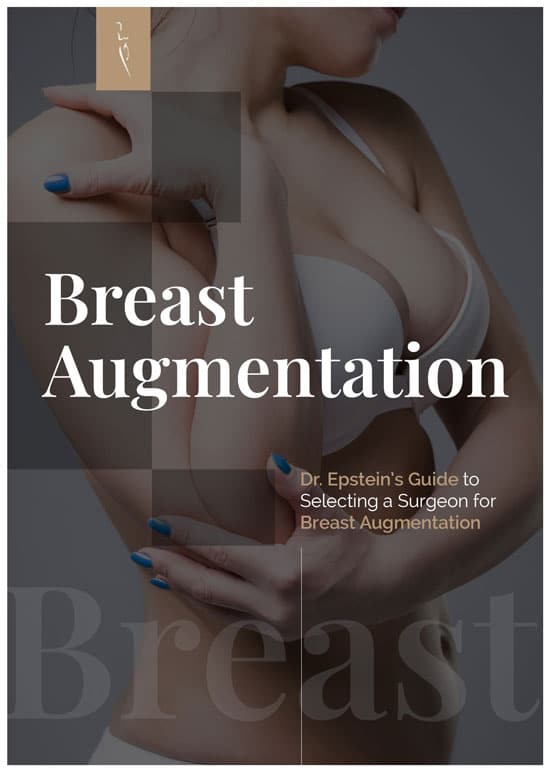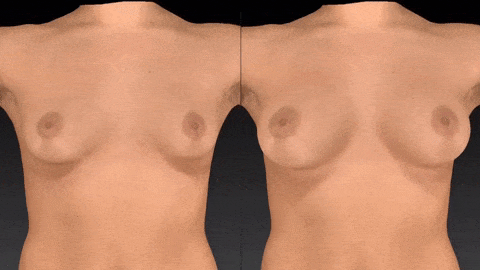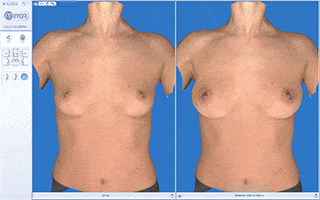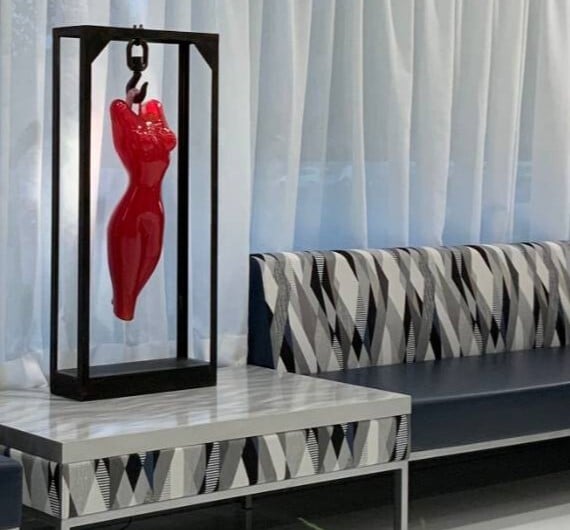How to Use This Guide
This Guide to Breast Augmentation has evolved over twenty years. It is regularly updated with the latest information. It is also one of the most comprehensive sources for information about breast implants and breast augmentation surgery that you will find anywhere. The information presented is factual, and where it is my opinioin based upon my over thirty years of practice, I state so.
The guide is organized into a menu with chapters and submenu items representing subchapters. You can navigate easily a the top via the main menu, or using the menu items at the bottom of each page.
I welcome any feedback that you may have. The purpose of the guide is to provide all the information you need in one place so that you are empowered to make the decisions that are in your best interest.
Wishing you a wonderful and exciting breast augmentation journey!
MDE
Breast Augmentation - Introduction
According to the American Society of Aesthetic Plastic Surgeons, Breast Augmentation surgery (also known as Augmentation Mammaplasty) is one of the most commonly performed cosmetic surgical procedure in the United States, allowing women with smaller breasts to enjoy a fuller, better-proportioned appearance. Over 300,000 breast augmentation procedures are performed annually in the United States. Under my expert care, patients can enjoy great-looking, natural-feeling and looking breasts that are one or more cup sizes larger after the operation. Many women choose to undergo breast enhancement after losing breast volume from pregnancy, weight loss or if they are born with naturally uneven breasts. Breast augmentation surgery can improve self-confidence and help you achieve the shapely appearance you have always desired.
Breast Augmentation can give women with small or unevenly sized breasts a fuller, firmer, better-proportioned look through the placement of saline or silicone implants in the breast. Women may elect to undergo breast enlargement surgery for many different reasons, including increasing or balancing breast size and compensating for reduced breast mass after pregnancy or surgery, or possibly to correct a congenital breast defect.
There are many options to consider: type of implant (saline or silicone gel), conventional silicone gel or highly cohesive ("Gummy-Bear") silicone, shape (round or anatomic "teardrop"), surface texture (smooth, "Silk Surface" or "textured"), placement of implant (above the muscle or below it), implant size, technique (dual plane type I, II or III), whether or not a breast lift (mastopexy) is also needed and whether or not it should be performed at the time of surgery or later. The breast augmentation procedure is performed under general anesthesia and takes less than an hour. It can also be combined with other procedures, such as a breast lift, to maximize results.
LISTEN TO KRISTINA AS SHE DISCUSSES HOW SHE FEELS JUST 40 MINUTES AFTER WAKING UP FROM A BREAST AUGMENTATION SURGERY!
If you look carefully, you will see the brown antiseptic and purple surgical marker lines are still on her skin!
You can watch more videos of Kristina in our Video Gallery.
Dr. Epstein uses 3D computer simulation for surgical planning and the One-Day Recovery Breast Augmentation technique for the surgical procedure.
Your Guide To Breast Augmentation Surgery
Want to learn more about Breast Augmentation surgery? Download our free eBook, Dr. Epstein's Guide to Selecting a Surgeon for Breast augmentation procedures.

Who is a good candidate for breast implants?
On this website, I will be referring strictly to breast augmentation with implants for cosmetic reasons, not reconstruction for breast cancer. In order to be a candidate for breast implants, you should lead a healthy lifestyle that does not include smoking, cancer, be free of any infections and have no history of problems with general anesthesia. You should not currently have any breast disease, be pregnant or nursing. You weight, blood pressure and overall medical health should be good. If you have a family history of breast cancer, especially on your mother's side, please make certain to note when you give your medical history, as additional information will need to be obtained.
Most women I see are good breast augmentation candidates. There are some limitations; as the surgeon, I can only work with the tissue I am given. Some patients have issues that may compromise the results or make the surgery a little more difficult. This includes differences in breast size, shape and position on the chest; chest wall (rib cage) asymmetry; overstretched tissue from pregnancy or weight loss; drooping of the nipple (ptosis); asymmetry of the nipples/areolae, and drooping ("bottoming out") of the glandular tissue. This does not preclude being able to perform a breast augmentation, however, the presence of some of these conditions may require a breast lift, or limit what can be safely and reliably achieved with surgery.
One Day Recovery Breast Augmentation
98% OF DR. EPSTEIN'S BREAST AUGMENTATION PATIENTS ENJOY A 24 HOUR RECOVERY!*
- 98% achieve a 24 hour recovery. These patients are able to return to most normal activities (except strenuous exercise) 24 hours after surgery. *
- 99% require no narcotic pain medicine after surgery. **
- 100% raise their arms over their heads before they leave our facility after surgery. ***
* Per patient survey data 2008-2012
** Was 97% 2008-2012, now closer to 99% for past several years
*** Based on observations of patients in facility right after surgery
WATCH AS JENNIFER RECOVERS DURING THE FIRST 24 HOURS AFTER SURGERY
You can watch more videos of Jennifer in our Video Gallery.
Breast augmentation performed with the One-Day Recovery technique reduces post-operative pain and allows patients to resume their regular activities often within 24 hours. This is achieved by soft tissue-based planning techniques, gentle, precise surgical techniques and by clear communication between doctor and patient during the surgical consultation.
The outcome of One Day Recovery Breast Augmentation is enhanced aesthetic results with a significant reduction in discomfort and recovery time. Patients often do not need any pain medication other than Advil, and can often brush their own hair and apply makeup before leaving the surgical facility!
We distinguish this procedure from "Rapid Recovery" surgery. "Rapid recovery" is a vague and nebulous term. What we are talking about here is recovery in 24 hours or less as defined by a return to most of your normal daily activities except strenuous exercise. Sexual intercourse is permitted (not "Olympic sex") the same day and you may lift up to 25 pounds as well. All WITHOUT the need for narcotic pain medication!
This technique is also associated with the lowest risk for re-operation in the plastic surgical literature (scientific articles).
Wish You Could Visualize the Results Before Surgery?
NOW YOU CAN WITH VECTRA 3D SIMULATION!

Vectra 3D
Dr. Epstein is the 1st in Suffolk County, Long Island to offer 3D Computer Imaging Breast Augmentation!
Vectra 3D produces a 3D photograph of the patient. Dr. Epstein is then able to simulate the expected results of breast augmentation, showing the patient how they might look after breast augmentation. The images can be viewed from all angles, as well as side-by-side and translucent overlays, allowing patients to see how they may look after augmentation with different types of implants.
Learn about our Vectra 3D - three dimensional computerized simulation of surgical results.
Gummy Bear Breast Implants
What about gummy bear implants? These implants have been available to women all around the world for many years, and were approved by the FDA for use in the United States in 2012. A variation on traditional silicone implants, the gummy bear implants earned their nickname because their consistency is remarkably similar to that of gummy bear candies. The difference between "non- Gummy" and "Gummy" is that in the "Gummy" implants, the silicone gel molecules are more tightly "linked", making it a firmer gel than traditional silicone gel implants. The art and skill of the silicone chemistry comes in manufacturing a gel that is firm enough to maintain its shape over many years, yet also soft enough to emulate the feel of natural breast tissue.
"Gummy bear" is a slang term for silicone filled breast implants that have an improved ability to maintain their shape, a property also known as "form stability." Patients are often confused by this term and think that it is something different than silicone gel implants. Silicone gels come in many formulations with varying mechanical properties. Those that are more form stable are arbitrarily called "Gummy bear." My advice is not to use this term, it just leads to confusion. I will not be using the term "Gummy" anywhere else on this website.
For many years (1994 - 2024), I have been utilizing primarily Allergan Natrelle breast implants. Mentor and Sientra also have their versions of form stable implants. Allergan Natrelle form stable implants include the Soft -Touch, Cohesive and the Teardrop Cohesive silicone gel implants. The new Motiva implants, both the Round Motiva and Ergonomix Motiva, are both form stable as well, so you can call them "Gummy bear" also, but again, I don't like that term.
The Allergan Natrelle Responsive implant is a less form stable implant, and therefore is considered, again arbitrarily so, to be "non-Gummy."
As of October, 2024, my preference for silicone gel breast implant is the Motiva Round and Motiva Ergonomix implant. You can learn more about Motiva breast implants here.
What to know about Breast Augmentation Complications
Breast Augmentation and Pregnancy
I will not perform any cosmetic breast procedure on a woman who is pregnant, lactating or planning to become pregnant in the very near future. Many of my patients have undergone breast implant surgery and then became pregnant at a later date with no significant deleterious effects on the results of their implant surgery from the pregnancy. If you do undergo breast augmentation, and then become pregnant, it is possible, although not very common, that you may desire to undergo a breast lift later after you have completed childbearing. As for breast lift surgery, most women seeking this procedure wish to correct sagging of their breasts following pregnancy, therefore, such surgery is generally postponed until such a time that the woman no longer desires to bear any more children.
A Successful Outcome of Breast Augmentation
I define a successful outcome in breast augmentation surgery as one in which the patient goes into surgery with realistic expectations, and a surgical result is delivered which meets or exceeds those expectations. As I go to great efforts so that the patient has been properly educated as to what is a likely outcome, and that outcome is met, then both the patient and I are more likely to be satisfied with the final outcome. The key to success is education and proper decision making. Proper decision making in plastic surgery is a joint effort between the patient and surgeon. The patient is presented with many options and decisions to make. If the patient is not properly educated as to how to consider all factors and how to make the necessary decisions, then there is no assurance of a good outcome.

Vectra 3D - Learn about our three dimensional computerized simulation of surgical results
Breast Expectations: Surgery Planning for the Short & Long Term
Avoiding the Need for Revisions
Using the One-Day Recovery Breast Augmentation process, my three year revision rate is about 2% versus national published rates between 15-40%. In my practice, most indications for revision of a breast augmentation are due to issues that evolve that are out of the control of both the surgeon and the patient. This applies to issues related to tissue stretching and wound healing, neither of which we can control. However, by selecting the proper size implant for your breasts as well as by performing a precise and delicate creation of the implant pocket, the likelihood of you requiring a revision of your breasts in the next several years is minimized considerably.
As you can see, the best chance you have at achieving a beautifully crafted breast augmentation is at the first surgery. After this, revisions can become difficult, complicated, expensive and occasionally fail. Anyone who believes that they can re-write the laws of nature and place implants that are too large, or dissect pockets incorrectly and still obtain a predictable, excellent result with a low complication and revision rate is only fooling themselves. It is up to the patient to exercise their due diligence and educate themselves, rather than be a passive participant in the consultation process.
Let's just get this one out of the way…
There is this crazy myth that keeps circling the globe, and I wish I knew who started this rumor, but here goes…
Do implants need to be changed every ten years? - The answer is no. If your breast implants are doing well, you do not need to routinely replace them. However, it is important to understand that breast implants are not "lifetime devices" and additional surgery at some time in your lifetime is likely.
My current recommendation for women who undergo breast augmentation is to undergo an ultrasound examination 5-6 years after augmentation surgery, and then again every 2-3 years later. MRIs can also be performed, but with little extra benefit and much greater cost. As long as the implant is intact and you are satisfied with your breast augmentation, you do not need to replace your implants.
My philosophy…
Every woman is unique in both her desires and her body shape. With that in mind, I take the time during the pre-operative consultation to learn what is important to each patient, as well as what she hopes to gain from breast augmentation surgery. Patient education is absolutely essential so as to make the proper decisions regarding which implant type, size and placement is best. In this way, each patient enjoys a completely customized treatment designed with her specific goals in mind.
During your consultation with me, you and I will make decisions together about the type, size, incision and placement (ie: above or below the pectoralis muscle) of your implants. Your anatomy, as well as the tissue characteristics of your breasts, play a major role in these decisions. I will discuss with you the available options for breast augmentation surgery.
This website is designed to provide you with enough information so that you can make an informed decision about your surgery. The more information you have, the better empowered you will be to make all the necessary correct choices. I welcome feedback on this website as well as any suggestions that you may have to improve it.
Dr. Epstein's Guide to Breast Augmentation
Chapters - Breast Augmentation Guide
- Intro to Breast Augmentation
- Motiva Breast Implants
- Five key decisions you need to make
- One-Day Recovery Breast Augmentation
- Anesthesia – General, Sedation or Local?
- Breast Lift (Mastopexy) with/without Implants or Fat
- What else should I know about breast augmentation?
- Important Things to Consider When You Decide to Move Forward With Breast Augmentation
- Revision of breast augmentation
- ALCL and Breast Implant Illness
Breast Procedures
Schedule Your Breast Augmentation Consultation Today!
Interested in learning more about Augmentation Mammoplasty? Give us a call at 631.689.1100 to schedule your consultation with Long Island breast surgeon Dr. Mark Epstein today!



